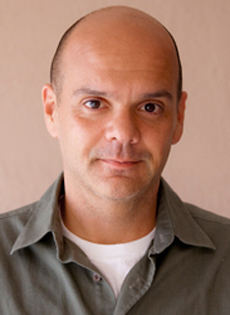
Easter Triduum
Monday, March 30, 2015
Dan Gonzalez
Lent comes to an end before the evening Mass of the Lord's Supper on Holy Thursday, which inaugurates the Easter Triduum — the three days which form the pinnacle of the Church year: "Christ redeemed us all and gave perfect glory to God principally through his paschal mystery: dying he destroyed our death and rising he restored our life. Therefore the Easter Triduum of the passion and resurrection of Christ is the culmination of the entire liturgical year." (General Norms for the Liturgical Year and the Calendar #18)
These three days witness the most exalted liturgical celebrations of the year and recall the passion, death and resurrection of Christ.
Holy Thursday
On the morning of Holy Thursday, the bishop celebrates the Chrism Mass, where three kinds of oils used in anointings and consecrations throughout the year are blessed. (In many dioceses, including Miami, the Chrism Mass is celebrated on the Tuesday of Holy Week, for pastoral reasons). The three oils that are blessed are:
- The oil of catechumens: used in baptisms, the consecration of churches and the blessing of altars;
- The oil of chrism, used immediately after baptism; for confirmation; in the consecration of priests, bishops and churches; blessings of church bells, baptismal water, patens and chalices;
- The oil of the sick, used in the sacrament of anointing of the sick.
From this reserve, priests of a diocese take a sufficient amount of the oils to meet the needs of their parish. Each church houses the consecrated oils in a locked ambry in appropriately labeled containers.
It is also on Holy Thursday when Christ's institution of the priesthood and Holy Eucharist are commemorated. The night before his death, Jesus and his disciples were celebrating a final meal together when he commanded them to "do this in remembrance of me." Two thousand years later, the Catholic Church has a half million priests who, on a daily basis, carry out Jesus' command. It is during this Mass that the bishop and priests recommit themselves to their priestly duties and vocation as the continuation of Christ's sacramental mission.
During the Holy Thursday liturgy, the celebrant will wash the feet of 12 parishioners in imitation of Christ's actions at his final ritual meal with his followers. While eating the last supper, Jesus humbled himself before the apostles by washing their feet as an example of the humility and service he wished them to share with others. In an era when open sandals were the most common footwear, hospitality norms in the East dictated that a host should provide water for guests to wash their feet. Often, the host would provide servants to do the washing as referenced in the Hebrew Scriptures:
"Rising and bowing to the ground, she answered, 'Your handmaid would become a slave to wash the feet of my lord's servants.'" (I Samuel 25:41)
Later, Jesus gave them a strict new commandment: "I give you a new commandment: love one another. As I have loved you so you also should love one another. This is how all will know that you are my disciples, if you have love for one another." (John 13:34-35)
For this reason, Holy Thursday is also called Maundy Thursday, from the Latin for New commandment, Mandatum novum.
Good Friday
From the earliest days in the Church, Good Friday, now called the Friday of the Passion and Death of our Lord, is the most solemn day of the entire liturgical year as it commemorates Christ's suffering and death on the cross.
The term Good Friday is exclusive to the English language, and its origin is disputed. Some claim that the word Good had the secondary meaning of holy. Indeed, Good Friday is known as Holy and Great Friday by the Eastern Christians. Others believe that Good refers, not to the cross, but to the redemption of man. Still others argue that the words Good and God were switched. For example God be with you — used as a departing blessing — was contracted to good-bye. Therefore Good Friday is a corruption of God's Friday.
Whatever the origins, the term Good Friday has been in use for centuries to designate the anniversary of Christ being crucified outside the city walls of Jerusalem. It is, perhaps, the most dramatic ceremony of the church year.
The Liturgy of the Word includes the suffering servant passages from Isaiah and the passion narrative in John's Gospel account, often depicted in a passion play. Later in the service, the procession and unveiling of the cross as well as its veneration take place, a custom whose roots are in the Holy Land.
According to tradition, a part of the cross upon which Jesus hung was discovered by Helen, the mother of Emperor Constantine, while on pilgrimage to Jerusalem in 326. She sent fragments to Rome. Before 400 the cross was venerated in Jerusalem, before 700 in Rome and in the rest of Christendom after that.
To further emphasize Christ's death on the cross and our yearning for salvation, Good Friday is the one day of the liturgical year when the holy sacrifice of the Mass is not celebrated, in deference to the historical sacrifice on Calvary. Since there is no consecration, the service is not a Mass. The faithful receive Communion from the reserved Sacrament which was consecrated previously.
The cross is as much a symbol of murder and death as it is an instrument of salvation and hope. It is this ambivalence that permeates the Good Friday liturgy.
Finally, at the end of the Good Friday service, the altar — the central symbol of Christ in the church — is stripped of its cloth and left bare, recalling Christ being stripped before Crucifixion. Christ is now dead and his Church is in mourning. But the faithful hold on to the hope of the resurrection on Easter Sunday.
Which day of the Easter Triduum is most impactful to you? Was there one celebration in particular that stirred your senses? Are there any Triduum customs in your culture? Share and let's learn together.
Correction, April 2: This article originally stated that priests were anointed with the oil of catechumens - as stated in the New Catholic Encyclopedia and its online version. However, the "Rites of the Catholic Church as revised by the Second Vatican Council" states that priests are anointed with chrism. Therefore this article has been changed to reflect that.


Comments from readers